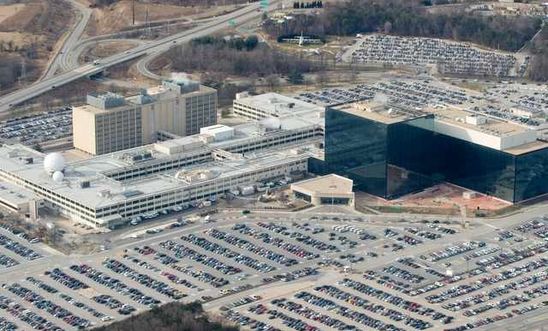
Press releases
USA: reports of Muslim surveillance using 'Mohammed Raghead' term raises concern

‘The burden is on President Obama to demonstrate that the surveillance was lawful’ - Steven W Hawkins
Claims that the US intelligence services and law-enforcement agencies are conducting apparently arbitrary surveillance of prominent US Muslims while using derogatory terms like “Mohammed Raghead” in their internal documents, raises serious concerns about anti-Muslim bias in surveillance procedures, said Amnesty International today.
A report in the publication “The Intercept” about the apparently arbitrary surveillance of several prominent American Muslims, includes an allegation that the term “Mohammed Raghead” was used as a “placeholder” for a template in a government document about how to make surveillance requests.
Any surveillance conducted on the basis of religion, rather than probable cause to believe that the individual had violated the law, would constitute discriminatory interference with the right to privacy, warned Amnesty, which is prohibited by both the US Constitution and international human rights law.
Amnesty International USA Executive Director Steven W Hawkins said:
“Given the indicators of discrimination, as well as the system’s lack of meaningful safeguards, we are very concerned that the monitoring was arbitrary and abusive.“It is simply unacceptable to discriminate against people on the basis of their religion or race.“The burden is on President Obama to demonstrate that the surveillance was lawful, and specifically that the government had probable cause to monitor the men, and was not motivated by racial or religious bias.”
While the situation is not yet clear, the US government may have been granted warrants by the Foreign Intelligence Surveillance Court (FISC) to conduct surveillance of the men referred to in The Intercept’s report. This court operates almost entirely in secret, relying on secret interpretations of controversial laws, and lacks sufficient protections against abuse. In particular, the court hears only the government’s request for surveillance and no other arguments. In addition, the court’s judges are chosen by the Chief Justice of the Supreme Court, an appointments process that damages its independence and impartiality.
Amnesty believes that these flaws significantly erode the FISC’s capacity to serve as a meaningful check on executive power and its willingness to consider the right to privacy as well as the needs of legitimate law enforcement.
Despite the system’s obvious shortcomings, calls for legislative reform have stalled, with the US Congress failing to move forward on draft legislation. Amnesty believes that the concerns raised by these cases demonstrate the urgent need for reform.
Call on Obama and Congress to act
As a step toward remedying the system’s failures, Amnesty is calling on the US president Barack Obama to ensure that his administration does not profile people on the basis of religion or race, including by improving the Department of Justice’s “Guidance Regarding the Use of Race by Federal Law Enforcement Agencies”. Meanwhile, Congress should pass the End Racial Profiling Act as well as comprehensive surveillance reform legislation that upholds the human rights of all people around the world and in the United States.
Surveillance under international law
Under international human rights law, any surveillance must be necessary and proportionate to a legitimate aim, such as countering serious crime, and be the least intrusive means of achieving that aim. Furthermore, the use of surveillance must be enshrined in law and be subject to independent review. Surveillance must be targeted at individuals and be based on probable cause. It should not be conducted on the basis of religion, race, nationality, gender or other discriminatory factors.